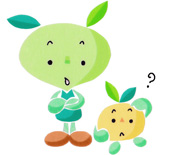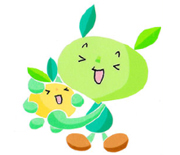Gibier
In autumn, we are able to enjoy tasty foods such as chestnuts, matsutake mushrooms and kaki persimmons. Also, autumn is the season of hunting. In Japan, the hunting season is open from October-November to February-March, and also this is the season of gibier. Gibier is a French word which represents the meats of game animals. Gibier was developed as traditional cuisine among aristocrats in Europe. Game animals such as deer, boars, hares, and ducks used to be eaten in Japan as well, but the consumption at one time became low. Recently, activities to utilize overpopulated sika deer as a gibier ingredient have been promoted. We can learn more about gibier in its season.
Dr. Yukiko Matsuura of the Yezo Deer Association who has conducted activities on this topic answered our questions.
- Questions answered by: Yukiko Matsuura
- Board Member of the Yezo Deer Association
Researcher of the Hokkaido Research Center, Forestry and Forest Products Research Institute
Q1
Could you please tell us about the diffusion of deer meat as a gibier ingredient?
A
In Europe, gibier is widely utilized as a seasonal ingredient during the hunting season. In the UK, there are six species of deer including Japanese sika deer (Cervus nippon), and it is said that sika deer meat is especially popular among them. As in Japan, deer meat was not a popular ingredient in the UK, but, as a result of PR activities involving famous chefs, deer meat has become widely known today. The Yezo Deer Association provides students with sika deer meat shabu-shabu at visiting lectures at schools. The students enjoy deer meat as they are free from prejudices.

Q2
Then, how did deer meat become utilized as gibier ingredient in Japan?
A
The meat of deer and boars used to be popular and there were specialty stores selling wild animal meat in Japan. However, after a long period of season closure, wild animals became unfamiliar for Japanese. But recently, overpopulated deer and boars have caused serious damage in agriculture and forestry and a number of traffic accidents. The conflicts between wild animals and humans are growing bigger. Furthermore, forests succession cannot take place as deer eat bark and buds. Accordingly, erosion is caused, and the balance of the forest ecosystem is lost. Now, a lot of deer have been culled. Isn’t it a waste if we don’t use deer as a resource? Therefore, activities to utilize captured deer as meat have been promoted.

Q3
But, isn’t it cruel to kill wild animals?
A
Overpopulation of deer has adverse effects not only on humans but also on the animals themselves as well as the forests. When the number of deer is too large, their bodies become smaller due to the lack of food, and even decrease in fertility. Some may think that “if deer are overpopulated, they will die naturally and be able to control their numbers by themselves.” But before that, forests will be lost as the deer eat all the bark and buds. In order to restore the balance of ecosystems, humans have to appropriately control the number of deer. Needless to say, it is important not only to hunt them but also to make the best use of dear meat, antlers and skin. These are important natural resources.

Q4
Is it safe to eat wild animal meat?
A
Being different from farm animals, wild animals are not managed or reared. Therefore, they may have diseases that humans could also catch. But in the case of sika deer, serious infections have not been confirmed so far. When we eat deer meat, we should be careful about the common food poisoning bacteria that all animals have. It is necessary to assure its safety in order to promote deer meat use, so the Yezo Deer Association established a quality certification system for deer meat treated by facilities that met strict hygiene standards in 2007, and grants the use of an authorized logo. This system enables the objective determination of safe and secure deer meat and contributes to its distribution. Now, large-scale firms have started dealing with deer meat.
Thank you very much, Dr.Matsuura.










